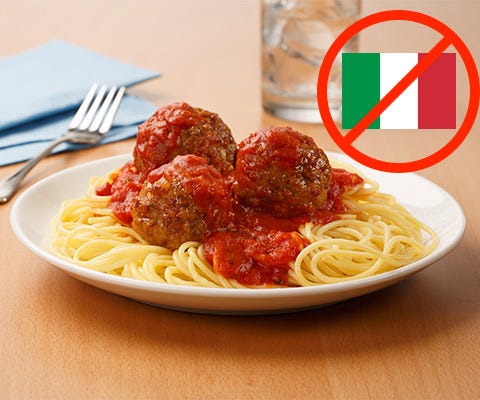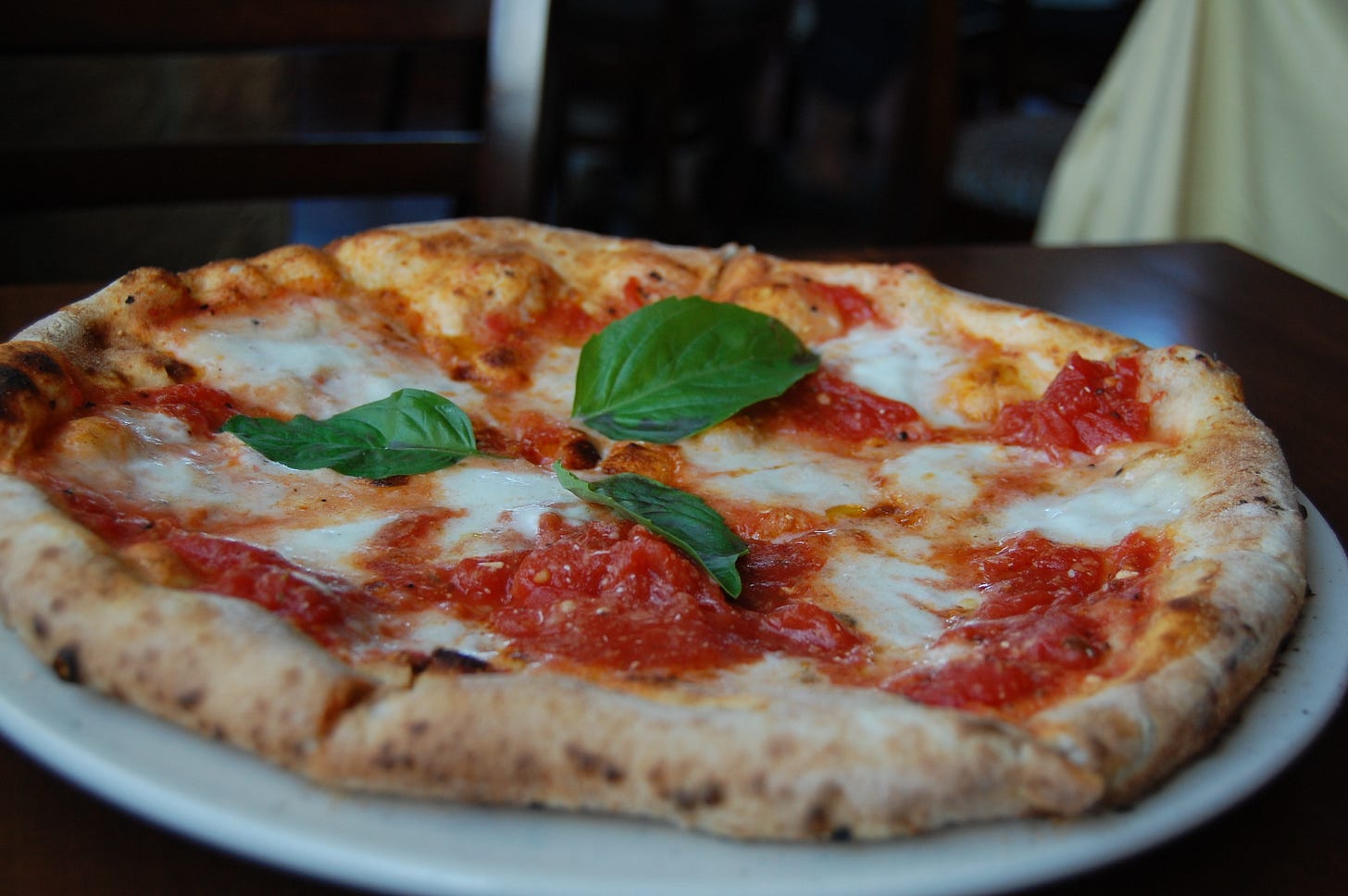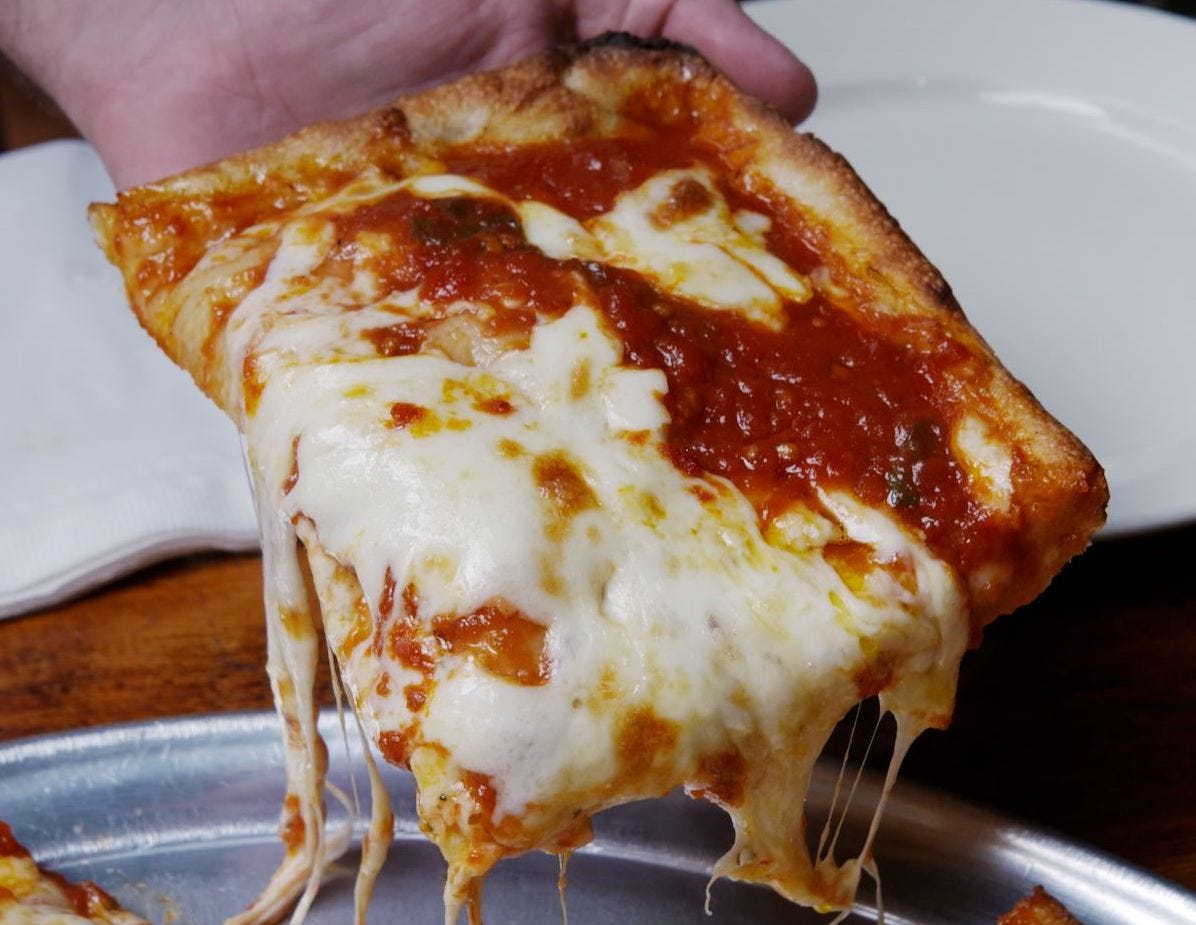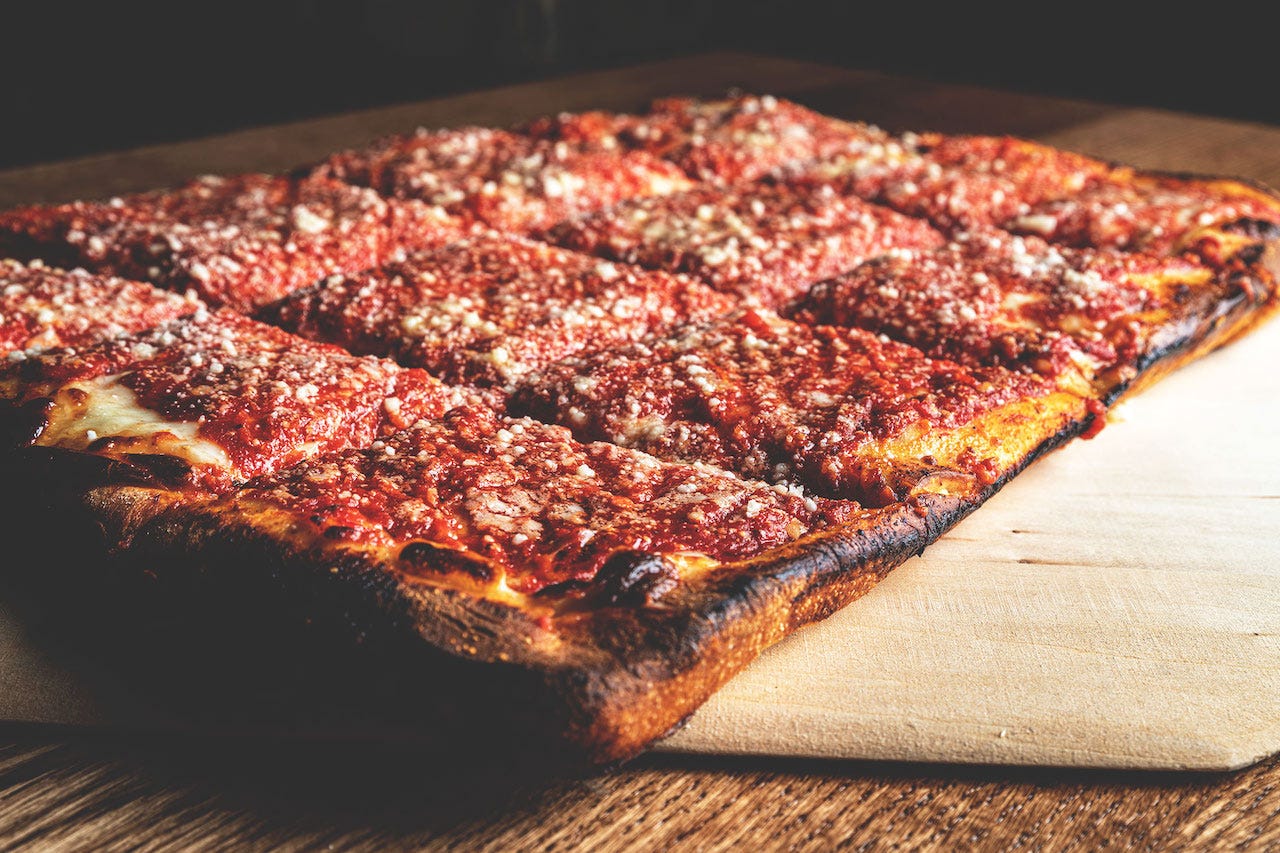I once had a fun little argument with a couple Italian friends about pasta and pizza. It started out with a post about one friend's horror at taking someone to a good Italian restaurant only to witness him order spaghetti and meatballs. A dish that, I have been informed too many times to count, is quite grotesquely "not Italian."
Being the nitpicking troublemaker that I occasionally choose to be, I proceeded to point out that pasta itself was not Italian in origin, having been invented by the Chinese and brought to Italy by Marco Polo. As another ‘authentic’ (read: self-described off-the-boat, born in Rome) friend of mine once observed,
Pasta is Chinese, we just invented the sauce.
Tomatoes, of course, aren't authentically Italian either, having been brought to Europe from the New World some time in the 16th century.
The conversation then turned (thanks to my proclivity for bickering over trivialities) to pizza. Being a good and proud Brooklyn native, I immediately declared that proper pizza is a New York City invention. My friend from Naples and her husband (a Staten Island native who forgets his roots) went non-linear, of course. As was my intent, of course. We got into a brief bit about origin vs quality vs authenticity, which brings me to today's musing.
Few will argue that the Italians haven't done glorious things with pasta and tomatoes, despite the decidedly non-Italian (as in, halfway around the world from Italy) origins of both. The matter of pizza - quality, authenticity, superiority - has induced endless arguments, and I'd surmise at least a few physical altercations. True NYers will (correctly…) declare that NY is the source, the embodiment, and the acme of pizzadom. Italians, and Neapolitans in particular, will scoff at this, given that Raffaele Esposito of Naples produced the combination of flat bread, tomatoes and cheese in 1889 for Queen Margherita (hence the eponymous style).
Even this assertion, though, is a bit problematic. Flat breads have existed for thousands of years, and flat breads with toppings go back to the ancient Greeks and Romans. If we are to declare "pizza" to be the invention of Signor Esposito, shouldn't we limit the term "pizza" to those that involve tomatoes and cheese?
White pizza, my mother's favorite, wouldn't qualify for the label under that stricture.
Nor would some of the assemblages under the "pizza" heading at our favorite local pizzeria (prosciutto, peach jam, basil and salted pistachio is one, black mission figs, pancetta, goat cheese, arugula pesto and truffle honey is another).
Then there's the matter of Sicilian pizza, something I've loved ever since my first slice at Nino's on 92nd Street and 3rd Avenue in Brooklyn some time in the mid 1970s.
Nino's is still there, and still makes a good pie, but that variant of Sicilian pizza, with rows of thick sauce on top of the cheese, went away in the early 80s or thereabouts when ownership changed. A legendary surviving sauce-on-top incarnation can be found at L&B Spumoni Gardens in Gravesend.
The Internet suggests that Sicilian pizza predates Neapolitan pizza, which complicates the use of the term "pizza" even further.
Then there are the things that have happened outside New York. Chicago, in particular, has that big bowl of tomato sauce they call "deep dish" "pizza." I've had both good and bad examples of it. I've found some iterations quite tasty, and would happily enjoy good versions were I to visit a place that does them well, but I will forever use scare quotes when associating that style with the term pizza.
Some Chicagoans will scream blasphemy and call me all sorts of unpleasant names, but therein lies the fun of such arguments. It's all about bragging rights, one-upmanship and a wee bit of leverage. And, most importantly, it's having fun over what are essentially trivialities. In the end, we will each enjoy the pizza that we like without giving a hoot about offending the pizza scolds.
Where the fun ends is when such arguments about authenticity arise in the political world.
We've heard screams of "RINO" in reference to politicians who wear the Republican label but don't conform to someone's vision of what a "real" Republican or "true" conservative is.
We're seeing many on the Left tearing into the Democratic establishment over purity, ‘true’ progressivism, and abandonment of whatever principles they claim at the moment.
I've often joked that libertarians' favorite pastime is denouncing each other as "not real libertarians" when the slightest disagreement arises.
These aren't mere declarations of disagreement, they're attempts at asserting the superiority of one's views by claiming authenticity and provenance. Such behavior is a form of the "appeal to authority" and "appeal to tradition" logical fallacies.
Or, more briefly, labels have power.
One reason that people have taken the time to identify and categorize logical fallacies is that they often work, especially on people who don't spend way too much free time engaged in linguistic pugilism. Arguments usually don't involve umpires, judges, or hall monitors who will call foul when they observe the use of a fallacy, just as street fights don't involve referees, and if the goal is to win, people will use whatever tools they think will get them there. In a street fight, the person who opts to adhere to Marquess of Queensberry rules is likely to lose to the person who decides that a kick to the groin is a good opening move.
The problem with such a maneuver is that, later on, the person who was beaten by either a dirty tactic or a logical fallacy won't have any reason to respect the winner's victory. In other words, if you argue down someone else by bludgeoning him with "my way is the authentic way," or "my candidate's purer than yours," you're not building a basis for him to consider your arguments after the heat of the moment has passed.
So, we're better off leaving "authenticity" arguments for things like pizza, pasta and the fact that Budweiser is made with rice, which invalidates it from ever being considered "beer." Falling for label games in matters of actual importance both detracts from what really matters, i.e. issues and actions. It also injects tribalism into the conversation, and grants power to the labelers.
As Saul Alinsky observed,
He who controls the language controls the masses.
Unfortunately, we have to play both sides of the label game. It behooves us to challenge label games and authenticity fallacies while keeping our “eyes on the prize.” In both politics and normal life, what you do should matter much more than what you “are.”
Thank you for reading! If you enjoy The Roots of Liberty, please subscribe (if you have already, thank you!), please hit that “like” button to let me know, please share any article you like wherever you roam the Internet, and please recommend the blog to your friends.
If you really like The Roots of Liberty and want to help keep it rolling, please consider becoming a paying subscriber here at Substack, or at a lighter level as contributor to the blog via Patreon.
Thank you, again, for your support!
Peter.












I really enjoyed this. During my fourth deployment to Afghanistan, I was a liaison to the Italians, and ate in their chow hall for awhile. This Southern Redneck really enjoyed their food.